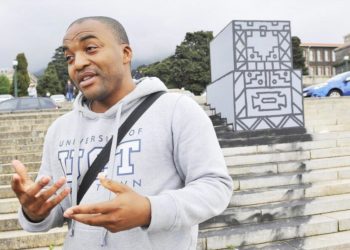Had good cause to recuse herself, former judge finds.
Had good cause to recuse herself, former judge finds.
DURBAN – Former South African Reserve Bank governor Dr Gill Marcus has been found wanting by retired Judge Justice Willem Heath, who conducted a review of the Mpati Commission Report into alleged impropriety at the Public Investment Corporation (PIC).
Judge Heath was commissioned to probe the outcome of the Mpati Commission by Sekunjalo Investment Holdings (SIH), in which Marcus was one of the assistant commissioners.
The aim of involving Heath was to review the report on the proceedings and findings of the PIC Commission of Inquiry, which has produced significant negative press for Sekunjalo and some of the entities associated with it – loosely called the Sekunjalo Group.
President Cyril Ramaphosa appointed former Supreme Court of Appeal Justice Lex Mpati to lead the investigation on the allegations of impropriety at the PIC, while Marcus and Emmanuel Lediga were assistant commissioners.
Heath found there was good cause for Marcus to have recused herself from the commission. Heath cited in his report, which has been seen by Independent Media but is yet to be made public or shared with interested parties, that while under the governorship of Marcus, the Reserve Bank approved Steinhoff International’s listing on the Frankfurt Stock Exchange. Frankfurt is the largest of the seven stock exchanges in Germany.
It was also found that while Marcus was the executive director of the Knysna Initiative for Learning and Teaching (Kilt), the Western Cape-based NGO received donations from Steinhoff.
“Despite Steinhoff suffering a major financial setback, it appears that the company continued to donate to Kilt until February 2018,” read the report.
Marcus did not respond to questions sent to her via her Kilt email address. Instead, Kilt community and public relations officer Shireen Nkosi said: “Please address all your enquiries to Steinhoff.”
The report further asked: “Why were Steinhoff executives and its former CEO Marcus Jooste never requested to testify (at the Mpati Commission), despite the collapse of the organisation, leading to the loss of billions of state pension funds invested through the PIC?
“Why was Steinhoff so desperate to keep this agreement intact while cancelling all other sponsorship agreements?” (Referring to Steinhoff’s support of Kilt).
Heath also questioned Marcus’s behaviour during the proceedings of the Mpati Commission, which seemed to be against Sekunjalo executive chairperson Dr Iqbal Survé, and his companies. It found, according to the evidence before the commission, there was a clash between Survé and Marcus about the issue of transformation, “and Survé’s evidence before the commission”.
Heath said that on examining Marcus’s conduct toward Sekunjalo investee companies, such as AYO Technology Solutions (AYO), Sagarmatha Technologies and Independent Media, it “showed marked bias and prejudice”.
“A startling omission from the Mpati Commission was not investigating Steinhoff, the largest corporate fraud in South Africa’s history, where the PIC has lost between R30 and R31 billion.
“There is a strong suggestion Steinhoff was not investigated and that there was a deflection by Ms Marcus to AYO in order to prevent Steinhoff’s corruption and the PIC’s losses from being exposed.”
The Mpati Commission left out Steinhoff when investigating Jayendra Naidoo, whose company, Lancaster Group, had received R9.4bn, which was invested in Steinhoff and also resulted in “significant losses for the PIC”.
“Strangely, no Steinhoff executive or board member was called by the Mpati Commission to provide an affidavit or testimony.
The Heath report called on Sekunjalo to refer Marcus’s conduct to the relevant authorities for further investigation.
“The Sekunjalo Group suffered substantial financial and reputational damage as a direct result of the narrative created by Ms Marcus.”
Daily News


















